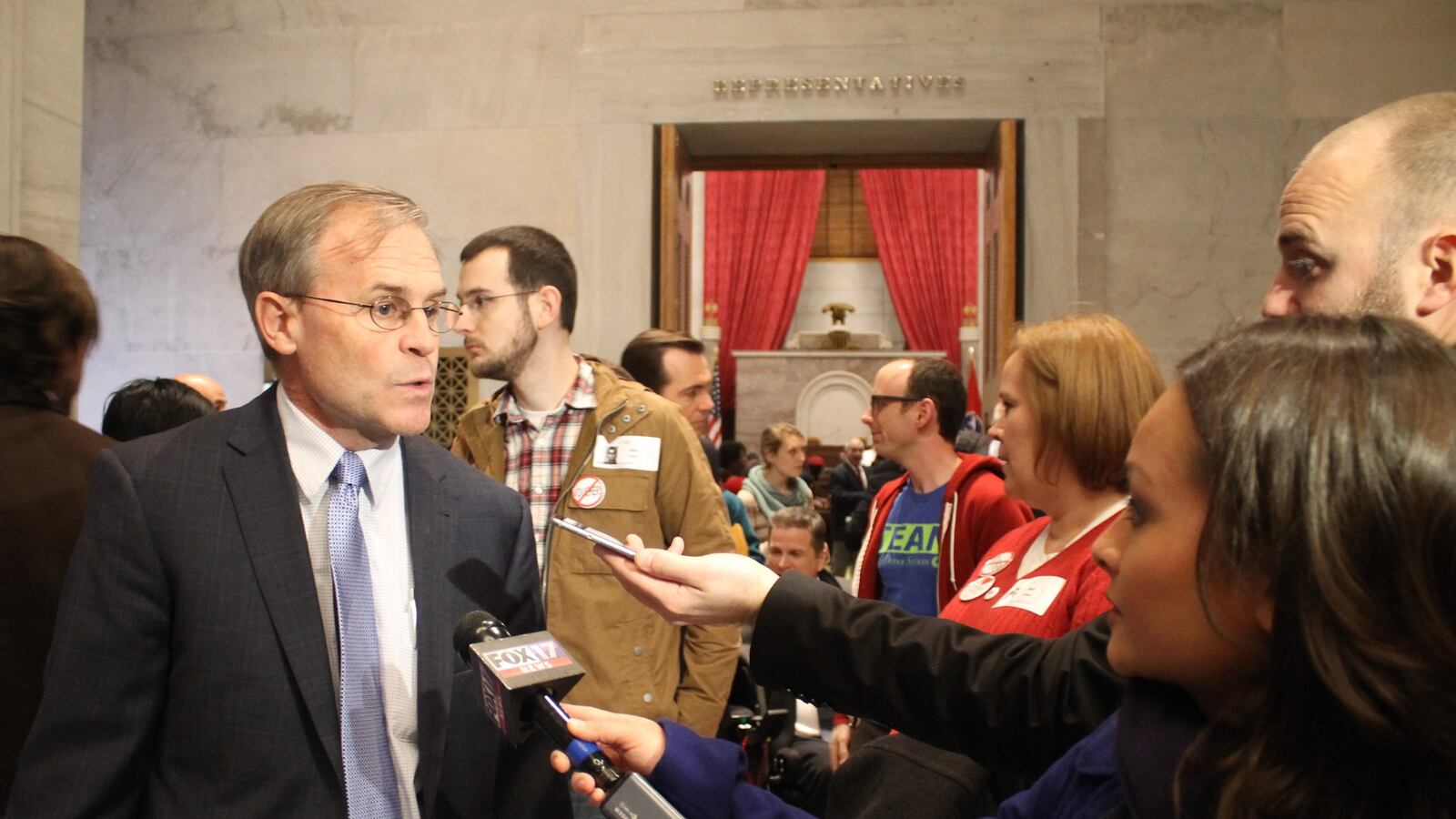It’s a long process to amend the state constitution, but lawmakers in Nashville took the first step Tuesday by approving a resolution that would give the legislature more control — and the courts less say — over the state’s level of education funding.
A House education subcommittee voted 5-2 in favor of a resolution that the sponsor says is designed to protect educational policy from “activist judges” ruling against state governments on issues ranging from charter schools to the adequacy of school funding.
“What I’m trying to get to is to emphasize and clarify that the General Assembly is the body that makes educational policy in the state of Tennessee,” said Rep. Bill Dunn, a Knoxville Republican.
Local school boards have often gone to court over the state’s formula for funding public education in Tennessee, which historically has ranked near the bottom in the nation for per-pupil funding. Since 1993, the courts have ordered the legislature three times to provide more funding to rural school districts.
Questions about state education funding came to a head again last year as eight school boards, including Shelby County Schools in Memphis and Hamilton County Schools in Chattanooga, filed lawsuits against the state. At issue are the adequacy and equity of the state’s funding levels given its constitutional duty to provide “a system of free public schools” for children in Tennessee,
Dunn said that the courts potentially could order the state to increase its education spending by $500 million. He wants the constitution amended to curb the courts’ authority and ensure that the legislature controls Tennessee education policies.
Specifically, the resolution would amend the Tennessee Constitution by adding the phrases in italics to a sentence in Article XI, Section 12 so that it reads: “The General Assembly as the elected representatives of the people shall provide for the maintenance, support and eligibility standards of a system of free public schools in such manner as the General Assembly may determine.”
Rep. Kevin Dunlap, a Democrat from Rock Island, argued that such a bill could infringe on students’ rights to an equitable education. As a former public school student in Warren County, he reflected on how the Tennessee Supreme Court’s 1993 ruling impacted him by ordering the General Assembly to increase funding for its rural schools.
“I’m sitting in this august body — I am sitting in the Tennessee Capitol as a member of the Tennessee House of Representatives — because that small schools lawsuit helped Warren County’s schools,” he said.
Dunn said that he is fairly sure that the proposed constitutional amendment wouldn’t impact the state constitution’s equal protection clause, which was key in the lawsuits of the 1990s that led to large-scale public education funding changes. He read aloud a text message to that effect from a staff member of the state attorney general.
Asked about seeking a formal opinion from Tennessee Attorney General Herbert Slattery III, Dunn said he did not want to wait for the formal opinion because the process to amend the constitution is lengthy. Both houses would have to approve the resolution this session, and then approve the amendment by a two-thirds majority next year in order for the amendment to go before Tennessee voters in the next gubernatorial election.
Dunlap suggested that it would be prudent to seek a formal opinion first.
“I respect that you’ve read from your cell phone a text message,” Dunlap said, “but I would not feel comfortable voting on a constitutional amendment from a text message.”
The bill now goes before the full House Education Administration & Planning Committee.


